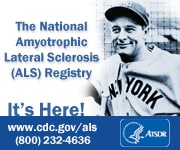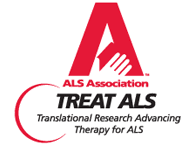Monday: The ALS Hatfields vs. The ALS McCoys
A few patients with ALS are trying some experimental treatments at an academic medical center in Mexico. The internet is quite the enabler for them to share their experiences. There are those who believe with every remaining neuron that this is going to be a big breakthrough. There are others who believe with every remaining neuron that this is going to be a painful and expensive dud.The Hatfields and the McCoys stayed on their own message boards and spoke their minds... then on Monday, the great crossover occurred and the rhetoric heated up.I offer this perspective from one who has been paying attention to ALS for many years. In the 1990s we had a wonderful resource -- Bob Broedel's ALS Digest. Using the listserv technology of the time, it delivered (to our dial-up email boxes) daily batches of questions and answers and observations and comments from people worldwide. Google may help you find some of the old digests that people have archived. There were people going to Kiev for treatments and there were people who thought they had discovered the cause of their ALS and there were people who always brought up frustrating comments about needing to be scientifically rigorous and statistically significant. The online media have changed in 2009, but not much has changed in the message. People who are dying from a mystery disease don't have time to sit back and wait and die. Other people add huge doses of scientific scepticism. With "normal" diseases it's a healthy point-counterpoint. With ALS it becomes a complicated fight for survival. The online tools and mores of 2009 make the conversation difficult to watch. Some of us even have questions that we would like to ask about the science and the protocols but hesitate to do so simply because there are such unpleasant lines in the sand.
Tuesday: What's "New?"
http://www.neurology.org/cgi/reprint/73/15/1218
All of the major ALS organizations touted that new patient care guidelines were to be presented by the American Academy of Neurology. When I read them, I wondered what was new. The practices were what we did in 1996 when Mom was diagnosed.
The not-much-new guidelines are revealing. Today we're not doing much differently from what Lou and Eleanor Gehrig did... except the wheelchairs are a lot nicer today. The need for these published guidelines also tells us something about the understanding and awareness of ALS in the general neurology and medical communities. If this document is a valuable new resource for physicians, then we have a lot of healthcare professionals who have not been very aware of ALS.
Wednesday: Easy For You To Say
On Wednesday the article "Fight Smart, Not Just Hard -- How I'd Battle ALS If It Happened To Me," by Richard S. Bedlack, M.D., Director of the Duke University ALS Clinic, was published in Neurology Now, a publication of the American Academy of Neurology.
Unfortunately the article (which was full of helpful suggestions) could have used a better title and premise.
We who don't have ALS can empathize and suggest, but we'll never know what it's really like to be slapped with that diagnosis and its complicated aftermath.
Sometimes it's hard to fight smart when it's not a fair fight... and the ground rules vary greatly depending one's situation in life.
So we still have three days in this week. I hope that it gets better for those dealing with ALS. If there is one thing that I am remembering this week it is that there are no right answers with a disease that is so wrong.











No comments:
Post a Comment